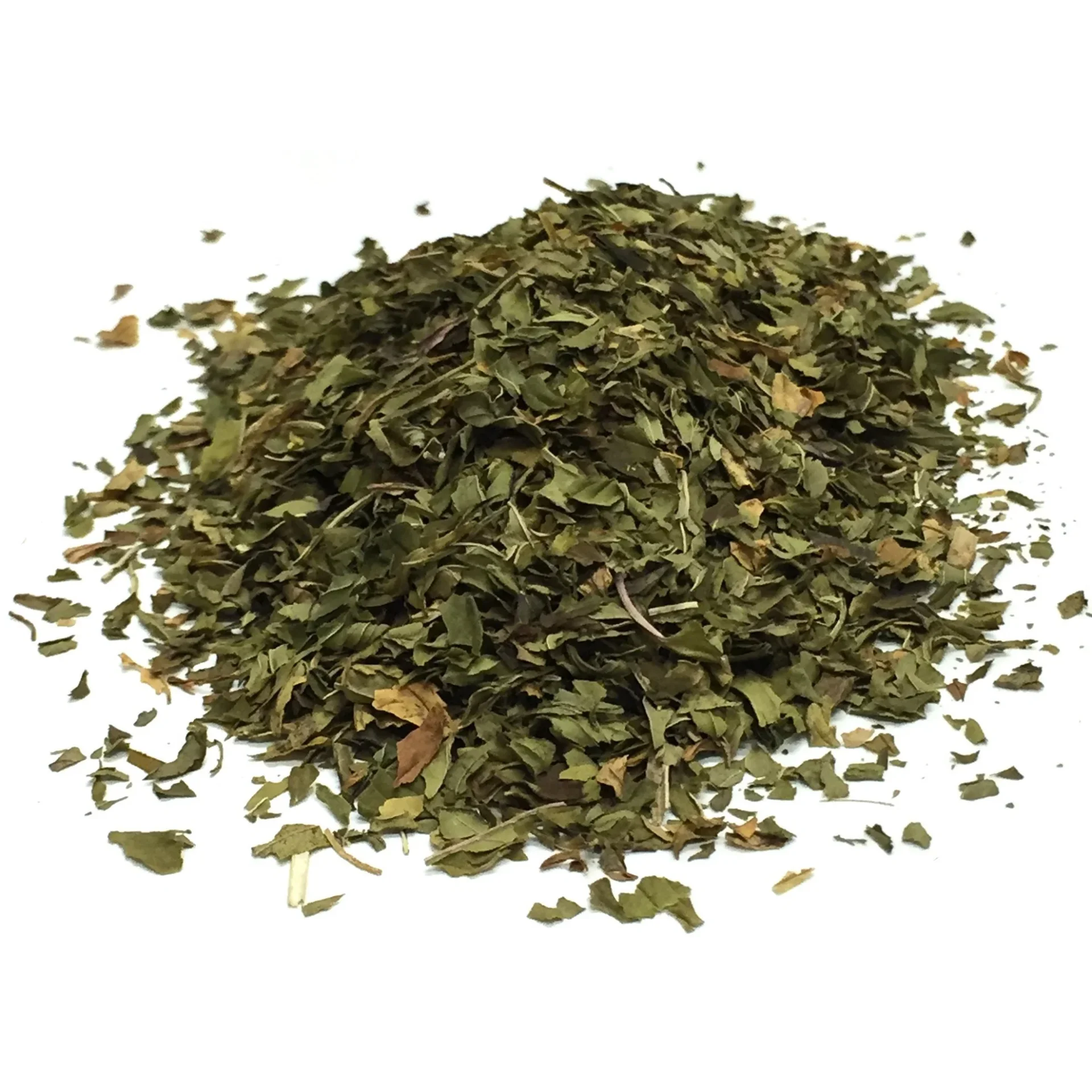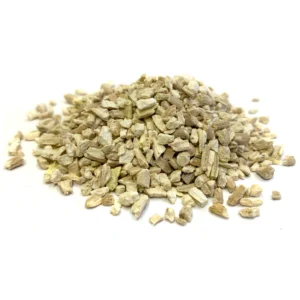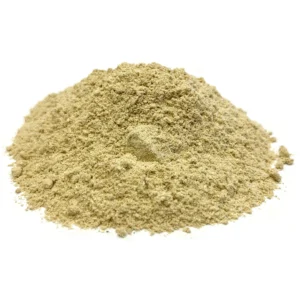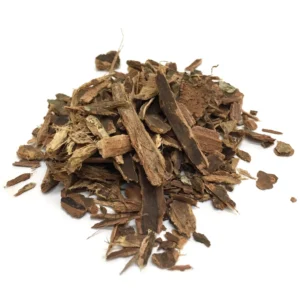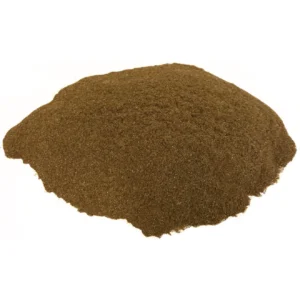Description
Peppermint Leaf is a perennial hybrid, with a menthol or distinct peppermint aroma The stems, coming from connected underground roots, are erect, square and branching, tinged with reddish-purple. The opposite, dark green, ovate to lanceolate, serrated leaves are smooth with few hairs. Flowers are pale violet in loose, interrupted terminal spikes. It is mostly cultivated.
Peppermint Leaf is found wild in moist cool, damp streams in lower altitudes, except California. It has many culinary uses.
Peppermint Leaf is used as a anodyne, carminative, refrigerant, & tonic. Steep 2-3 teaspoons of the leaves in 1 cup water. Take 1 1/2-2 cups a day. After 12 days wait a week before resuming. Repels mice and rats.
Origin(s): Egypt, Morocco, United States.
Latin Name(s): Mentha piperita.
Also known as: Brady mint, balm mint, curled mint, lamb mint.
Plant Part(s) Used: Leaf.
Appearance: Green.
Aroma: Menthol, cooling aroma.
Taste: Cooling menthol.
GMO Status: Non-GMO.
Allergen: None.
Additives: Free of any additives or preservatives.
Applications / Preparations: Can be put into capsules, teas, oils, seasonings, toothpaste, dental creams, mouthwash, cough candies, chewing gum, baked goods or infused as an herbal extract. For cosmetic use can be put in bath blends, soaps, shampoos & other topical formulations.
Storage: Store in a sealed container in a cool, dry place.
Shelf Life: It is very difficult to pin down an exact expiration date for most single herbs as they do not really expire, they lose potency or strength over time but will still have value. Unlike synthetic material or drugs, herbs can contain many constituents that contribute to their medicinal effects. Even if when we know what the active constituents are, there are often many of them in a single herb, each with different rates of degradation. Some herbs lose their effect more easily. Other herbs that possess more stable compounds such as alkaloids or steroids will last much longer.
A huge part of the degradation rate of herbs depends also on the storage conditions of the herb, & even on the quality of the herb before storage – how it was grown, harvested, dried & processed. If the product is left in hot places or open to sunlight then it will degrade much quicker than if it was stored in cool, dry place & sealed tightly.
A good rule of thumb is that herbs should be stored no longer than 2-3 years but many herbs will have great strength much longer than that. To determine if a an herb is still good you can check the appearance & aroma. Herbs that are no longer acceptable will have lost much of its vibrant color & will instead appear dull & faded. The bigger key though is to smell the raw materials to see if the potent aroma is still present.
Warning: None known.
Additional information
| Weight | 2.00 lbs |
|---|

